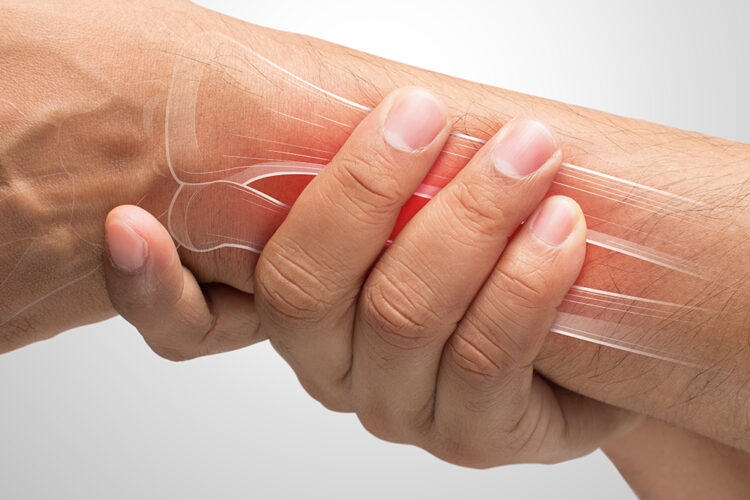When it comes to the health and well-being of our children, every decision matters. Selecting the right pediatric orthopedics is no exception. Whether your child is dealing with a musculoskeletal condition, sports injury, or developmental issue, finding the right specialist is crucial for their growth and future mobility. In this article, we’ll navigate the important steps and considerations involved in choosing the right pediatric orthopedics.
Understanding Pediatric Orthopedics:
Pediatric orthopedics is a specialized branch of medicine that focuses on the diagnosis, treatment, and management of musculoskeletal issues in children. This includes conditions related to bones, joints, muscles, ligaments, and tendons. Pediatric orthopedic specialists are trained to address a wide range of issues, from congenital abnormalities to injuries and developmental disorders.
Key Considerations for Choosing Pediatric Orthopedics:
Specialization and Expertise:
Begin your search by looking for pediatric orthopedic specialists with the right specialization and expertise. Pediatric orthopedics is a specialized field, and practitioners typically undergo additional training focused on the unique needs of growing bodies. Check for certifications, affiliations with reputable medical institutions, and a track record of successfully treating pediatric patients.
Experience in Pediatric Cases:
Experience is a key factor in choosing the right pediatric orthopedics. Assess the specialist’s experience in dealing with cases similar to your child’s condition. Whether it’s managing fractures, addressing growth abnormalities, or handling sports-related injuries, a seasoned pediatric orthopedic specialist brings a wealth of experience to the table.
Pediatric-Friendly Approach:
Children require a different approach to healthcare compared to adults. The right pediatric orthopedic specialist understands the importance of a child-friendly environment and a compassionate approach. Look for practitioners who can establish rapport with children, making the medical experience less intimidating and more comfortable for young patients.
Collaborative and Communicative:
Effective communication is crucial in pediatric orthopedics. Parents should feel comfortable discussing their child’s symptoms, concerns, and treatment options with the specialist. Choose a pediatric orthopedic surgeon who values collaborative decision-making, involves parents in the treatment plan, and ensures that all questions are addressed.
Comprehensive Services:
Pediatric orthopedic conditions can range from congenital disorders to trauma and sports injuries. Choose a specialist who offers comprehensive services covering a broad spectrum of pediatric musculoskeletal issues. This ensures that your child can receive all necessary evaluations, treatments, and follow-up care from the same trusted source.
Availability of Pediatric-Focused Facilities:
Consider the availability of pediatric-focused facilities in orthopedic practice. Pediatric-friendly environments, equipment, and support staff contribute to a more positive experience for young patients. Facilities designed with children in mind can help alleviate anxiety and create a supportive atmosphere during appointments and procedures.
Access to Advanced Diagnostic Tools:
Diagnosing pediatric musculoskeletal conditions may require advanced imaging and diagnostic tools. Ensure that the pediatric orthopedic specialist has access to state-of-the-art diagnostic equipment, such as X-rays, MRIs, and ultrasounds, to accurately assess your child’s condition and tailor the treatment plan accordingly.
Focus on Preventive Care:
The best pediatric orthopedics prioritize preventive care. This includes monitoring and addressing potential issues before they become more severe. Specialists who emphasize the importance of preventive measures, such as proper nutrition, exercise, and age-appropriate activities, contribute to the long-term musculoskeletal health of their young patients.
Navigating Pediatric Orthopedics in Your Area:
Choosing the right pediatric orthopedics also involves considering the local healthcare landscape and resources available in your area. Here are additional factors to keep in mind:
Proximity to Your Location:
Accessibility is a practical consideration. Choose a pediatric orthopedic specialist whose clinic or hospital is conveniently located to reduce travel time, especially in emergency situations or for frequent follow-up appointments.
Referrals and Recommendations:
Seek referrals and recommendations from your child’s primary care physician, friends, family, or other parents. Personal experiences and positive testimonials can provide valuable insights into the reputation and effectiveness of pediatric orthopedic specialists in your community.
Hospital Affiliations:
Check the hospital affiliations of the pediatric orthopedic specialist. Being affiliated with reputable hospitals or medical centers ensures access to additional resources and a collaborative network of healthcare professionals.
Insurance Coverage:
Verify whether the pediatric orthopedic specialist accepts your health insurance. Understanding the financial aspect of healthcare is essential, and choosing a specialist within your insurance network can minimize out-of-pocket expenses.
Conclusion
In conclusion, choosing the right pediatric orthopedic surgeon is a significant decision that requires thoughtful consideration. Prioritizing your child’s musculoskeletal health involves looking beyond medical credentials to ensure a holistic and child-friendly approach. From experience and specialization to communication and preventive care, each factor contributes to the overall quality of care your child receives.
Navigating the pediatric orthopedics landscape in your area, whether it’s San Antonio, TX, or any other location, involves a combination of research, referrals, and personal preferences. By taking the time to choose the right pediatric orthopedics, you’re investing in the well-being and future mobility of your child—a decision that holds immense significance in their journey to a healthy and active life.

